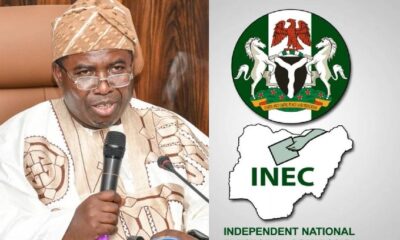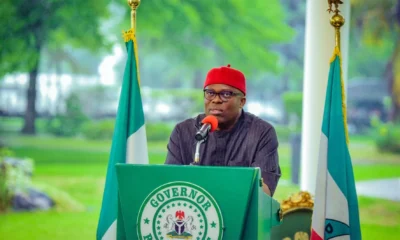News
Nigerians Spend N2.16 on Foreign Education in Six Months Despite Harsh Economy
New CBN data shows Nigerians spent a staggering $1.39bn on overseas education in just six months of 2025 — even as the country earned nothing from foreign students.

- New CBN data shows Nigerians spent a staggering $1.39bn on foreign education in just six months of 2025 — even as the country earned nothing from foreign students.
Despite complaints about rising inflation and economic hardship, Nigerians spent an estimated $1.39 billion (₦2.16 trillion) on foreign education in the first half of 2025, according to new data from the Central Bank of Nigeria (CBN).
The figure represents a 20% rise in dollar terms and 38% increase in naira value compared to the same period in 2024, based on an average exchange rate of ₦1,553.6 to the dollar.
The spending forms part of the CBN’s latest Balance of Payments (BoP) report, which highlights the growing wave of Nigerians seeking better academic and economic opportunities abroad. Yet, the report also reveals that Nigeria earned nothing under the “Education” category of its service trade balance — showing a complete absence of foreign students coming into the country.
Analysts say the imbalance underscores the worsening state of Nigeria’s education sector, where insecurity, decaying infrastructure, poorly funded institutions, and frequent lecturers’ strikes continue to push families toward foreign schooling.

The $1.39bn spent from January to June 2025 is the highest half-year outflow since 2021, coming at a time when the naira has experienced steep depreciation following the foreign exchange reforms of mid-2023. Even with a relatively more stable exchange rate in 2025, demand for foreign universities only increased.
Experts note that insecurity and Nigeria’s uncertain socio-economic climate are also major drivers, with many families now treating foreign education as a pathway to long-term relocation and second citizenship.
DON’T MISS: Oyedepo Declares Nationwide Seven-Day Midnight Prayers as Insecurity Deepens, Renews 15-Year Warning
According to Amaka Okeke, Executive Director at Optiva Capital Partners, genuine prosperity begins “when borders no longer limit ambition,” adding that second citizenship offers security and access to global opportunities. Many households now take loans or sell assets to finance their children’s overseas education.
The scale of the exodus becomes even clearer when compared to government spending. Between 2020 and mid-2025, Nigerians spent $11.1bn (₦9.9tn) on foreign education — an amount equal to about 2.6% of Nigeria’s annual nominal GDP, and in several years surpassing the combined education budgets of federal and state governments.

For context, the Federal Government allocated ₦2.52 trillion to education in the 2025 national budget — barely 5% of total spending, far below UNESCO’s recommended 15–20%.
Despite the massive outflows, Nigeria’s education sector attracts nearly zero foreign investment. The National Bureau of Statistics reports only $150,000 in capital inflow to the sector in 10 years, reflecting weak investor confidence. Lending from banks has also shrunk, dropping 22% to ₦69.7bn between January and September 2025.
However, analysts predict the foreign education rush may slow down soon. The US, UK, Canada and parts of Europe have tightened immigration and student visa rules, leading to more visa refusals. Rising global tuition fees and Nigeria’s exchange rate challenges may also force families to delay or reconsider foreign study plans.























